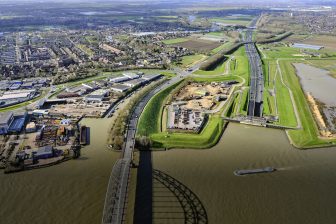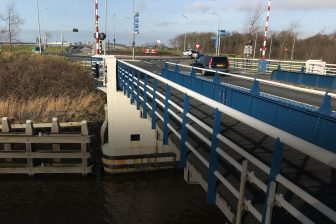World Bank: New Assistance Strategy Argentina
Press Release No:2006/442/LAC
First two operations for $180 million approved 2006-06-06 to support Municipal Development and Flood Prevention
Washington, United States of America – The World Bank Group 2006-06-06 launched its new Country Assistance Strategy (CAS) for Argentina, which will guide the Bank Group’s program in the country through 2008. In addition, the Board approved two loans totalling US$180 million for the Basic Municipal Services Project and the Urban Flood Prevention and Drainage program.
The CAS was prepared with the Argentine authorities within the context of broader discussions and consultations with civil society and the private sector, and includes support from both the International Bank for Reconstruction and Development (IBRD) and the International Finance Corporation (IFC), the private sector arm of the World Bank Group. The CAS includes up to US$3.3 billion in new IBRD financing for Argentina in support of investment operations to support the three pillars of sustained economic growth with equity, greater social inclusion, and improved governance.
“This assistance strategy seeks to build an investment partnership to support Argentina in its efforts to translate the strong recovery and welcome reductions in poverty and unemployment achieved in recent years into sustainable private sector-led economic growth and widely shared development that reaches every Argentine citizen,” said Axel van Trotsenburg, World Bank Country Director for Argentina, Chile, Paraguay and Uruguay. “With substantial new investment operations and a complementary program of analytical and advisory services, the Bank remains committed to a strong partnership with Argentina in the years to come.”
The IFC is prepared to continue its support for private sector development by providing long-term financing and structured finance products to companies and projects in strategic sectors, with an emphasis on groups expanding on a South-South basis and export-oriented or export facilitating projects.
New Country Assistance Strategy
The Bank’s investment partnership with Argentina will focus on a number of key areas:
The bulk of lending will be in:
- Infrastructure, particularly in transportation, including road network management, rehabilitation and maintenance through performance-based contracts, water supply and sanitation targeting priority municipal level investments and maintenance with poverty criteria, and urban flood and drainage.
- Social investments, especially in health, notably maternal and child health but also support for broader health sector reform, and Income Transfer Programs, through support to the emergency Heads of Household program and its transition to a more streamlined social safety net.
Lending is also planned for:
- Environmental sustainability and rural development. The CAS supports the Government’s efforts to re-launch the environmental agenda which has suffered as result of the crisis. Assistance will focus on forestry management, marine and coastal resources, and an integrated water resources management project.
- Public Sector Strengthening. The lending program seeks to support the twin objectives of improving basic service delivery to the poor and rebuilding public institutions at both the federal and provincial levels of government. Lending is planned to continue the advances in the national social security system supported by previous Bank assistance, in the National Social and Fiscal Data Identification System to improve the administration of social assistance programs, and in subnational administration.
To ensure the effectiveness and integrity of these investments, the CAS emphasizes concrete measures to strengthen the operating environment for Bank projects. In this context, a Fiduciary Action Plan will promote broader awareness of public investment, enhance Bank supervision, and help to ensure transparent and competitive procurement.
The Bank’s Executive Directors commended Argentina on the strength of the economic and social recovery from the crisis of 2001-2002. They recognized the important progress towards increasing growth, reducing poverty, and expanding employment. They also acknowledged the challenges in sustaining these gains. Many Directors stressed the need to strengthen the investment climate to sustain growth, consolidate the fiscal adjustment to underpin macroeconomic stability, and reform social policies to protect the vulnerable. In this regard, Directors emphasized the importance of improving governance and renegotiating infrastructure and public service concessions. They urged that this process be conducted in a fair and transparent manner, including the adoption of a clear and stable policy framework that restores the conditions for private sector participation. The progress on restructuring Argentina’s public debt was noted, as well as the need to address the remaining non-performing debt.
Basic Municipal Services and Urban Flood Prevention and Drainage programs
The Board also approved today two loans totalling US$180 million for Argentina to support the implementation of the Basic Municipal Services Project and the Urban Flood Prevention and Drainage program.
The Basic Municipal Services Project (US$110 million) will improve the quality of municipal services through the provision of water supply and sanitation, urban drainage and roads infrastructure in an equitable and fiscally sustainable manner. Specifically, the project will aim to:
- Improve the coverage, quality and efficiency of water supply and sanitation
- Enhance access to urban drainage infrastructure
- Increase access to paved roads and reduce logistic costs through investments in the pavement of urban and productive roads, and
- Improve the operational and commercial performance of municipal basic services through demand driven technical assistance.
The Urban Flood Prevention and Drainage Program (US$70 million) will reduce Argentina’s vulnerabilities to flooding, through a mix of physical, institutional and financial measures. Flooding is a major natural hazard in Argentina. This project will develop a risk management program for the provinces of Chaco, Corrientes, Misiones, Santa Fe and Entre Rios, which are located along the two main rivers, the Parana and Uruguay, constituting Argentina’s most vulnerable region to flooding. The program will improve the security of economic assets and people living in flood-prone areas, by constructing defense facilities to reduce future losses, by implementing a housing program for the benefit of the lowest-income population, and by strengthening national and provincial institutions and systems for dealing with future floods.
The Basic Municipal Services Project, a US$110 million investment loan from the IBRD is a LIBOR-based, fixed-spread loan, repayable in 14.5 years, and has a 4.5 year grace period. The Urban Flood Preention and Drainage Program, a US$70 million adaptable program loan from the IBRD, is a LIBOR-based, fixed-spread loan, repayable in 14.5 years, and has a 4.5 year grace period.
For more information of the World Bank activities in Argentina please visit www.worldbank.org/ar
U las zojuist één van de gratis premium artikelen
Onbeperkt lezen? Profiteer nu van de introductieaanbieding voor € 10,- per maand.
Bent u al abonnee?



